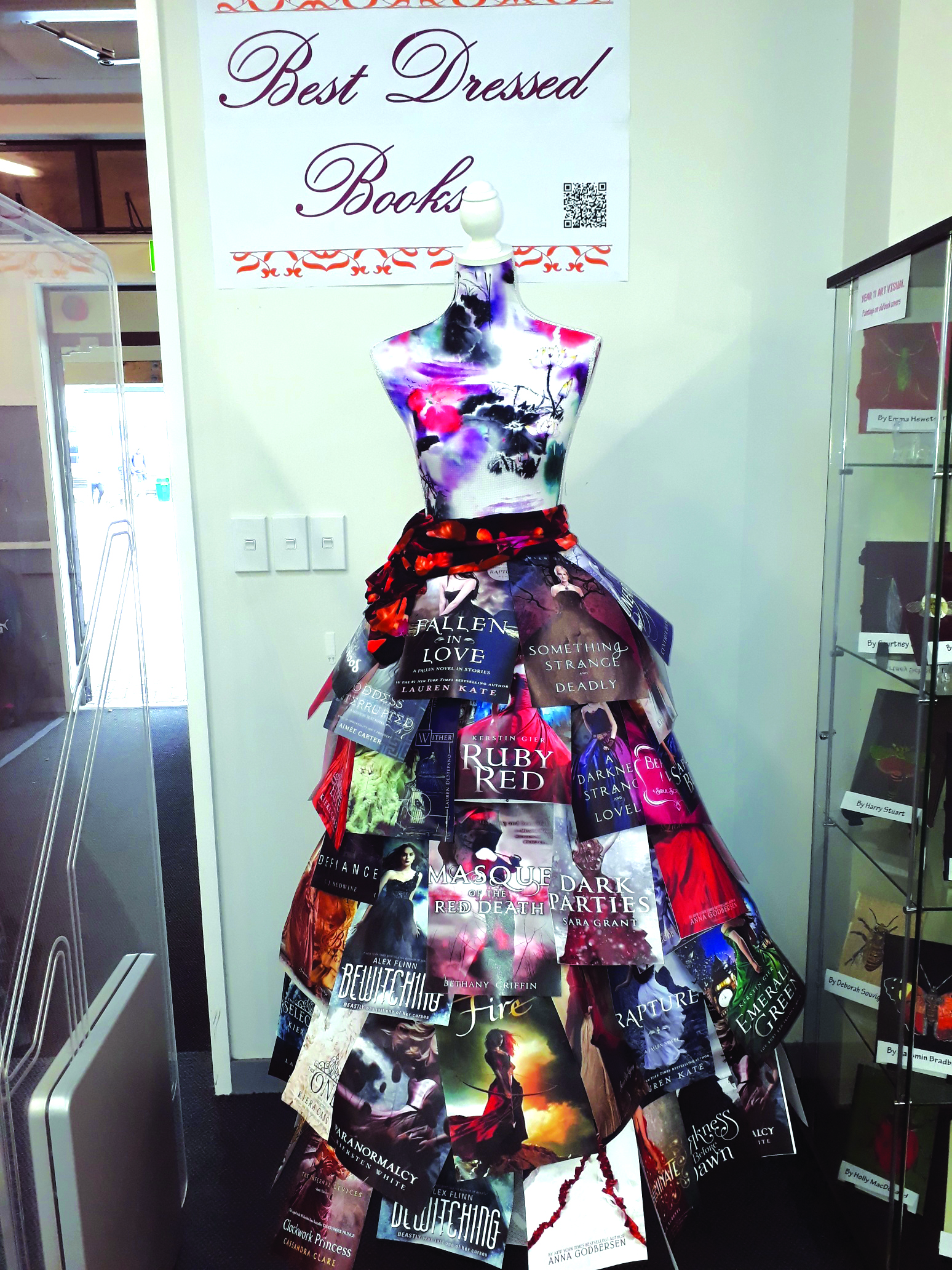Issue 110
Term 3 2019
School library spotlight: Macleans College
SCIS speaks to Christine Hurst of Macleans College in Auckland, New Zealand about what is happening in her school library.
What is your job title, and what does your role entail?
I am the library manager and my role is a mixture of behind the scenes and ‘front of house’ tasks. An ordinary day — if there is such a thing in high school libraries — could involve acquisition and purchases, showing a class how to access the databases we have, updating procedure documents, curating online content for class topics, creating a display, issuing books, helping students find suitable resources, or unjamming the printer! We have two library assistants who job share and, as we have 2,500 students in our school, there is never a dull moment in the library.
What is the most rewarding aspect of working in a school library, and why?
It is rewarding when I can convince a student who doesn’t normally read to borrow a book; or when a student finds a book they love and they’re super-excited about it; or when they ask for me to buy a book and they squeal with delight when it arrives.
What do you see as the most important part of the library’s role in the school community?
I see the library as a vital place to support students’ learning. We encourage students to come to our dedicated library space to research topics, source information and get help from the library staff. However, our students can also search and access our resources from anywhere inside or outside the school grounds using our onesearch LMS, Accessit.
Are there any current issues or challenges facing your library? How are you working to overcome these?
We are a high-achieving state school, and we have a large proportion of students whose parents have sent them here from overseas to get a quality education. There are some parents who don’t see reading books as an academic pastime — all they see is their child reading for pleasure instead of studying hard. So, one of my greatest challenges is convincing parents and students that reading equals academic success, and that it’s not a waste of time. The school addresses this with parents at an information evening about striking the right balance between education and recreation and I do this by including on the library web page some results of studies that support the benefits of reading.

An example of the engaging activities and displays featured in Macleans College library
How do you promote reading and literacy in your school? Are there any challenges in doing so?
One thing we do is a reading challenge sponsored by a pizza company. Students have to read six books and they get a voucher for a free pizza. We also offer classes book talks, where I talk very fast about a selection of books. This usually generates a lot of competition for the same books and some classes rush me once I’ve finished! Luckily, the English faculty supports recreational reading and every junior class has a regular library booking where they come and get books issued, and sit and read for the hour.
It is harder for seniors, as their schedules are packed and it takes more to convince the teachers to book library sessions. I recently completed a project where I surveyed and analysed the reading habits of two classes.
As expected, lack of time to read seemed to be the biggest issue for most students, although there were some who just didn’t like to read. So, my challenge was convincing them that reading is worthwhile. Again, I used studies to support the argument that reading is relaxing, and that it helps with vocabulary and general knowledge. Some students reported an increase in their reading after participating in my project, and one lovely Year 12 student said she was delighted to have rediscovered her love of books.
How do you encourage students to make use of the library?
We try to make the library a welcoming place to come. The school administration likes the library to be an academic space, so they don’t allow games in the library (our school has a house system, so students have a loud, fun place to play games at all times). Having an ‘academic’ library goes against the trend as many school libraries are evolving into fun makerspaces. However, rather than students being put off from coming, the library is in high demand and is packed to bursting most of the day. We also do vibrant displays of both fiction and nonfiction topics and themes. Even a small shelf of a particular author gets results. We also have a recent returns shelf and it’s amazing how many books are borrowed from there!
What is your favourite thing about SCIS?
Having great, consistent cataloguing! I also love the authority files with their ‘see also’ references.
What would you like to see SCIS do more of?
We subscribe to ClickView’s video library. I‘d like to see all ClickView records have a SCIS record (with the exception of Clickview exchange and personal recordings, of course).
Image credits
Image supplied by Christine Hurst